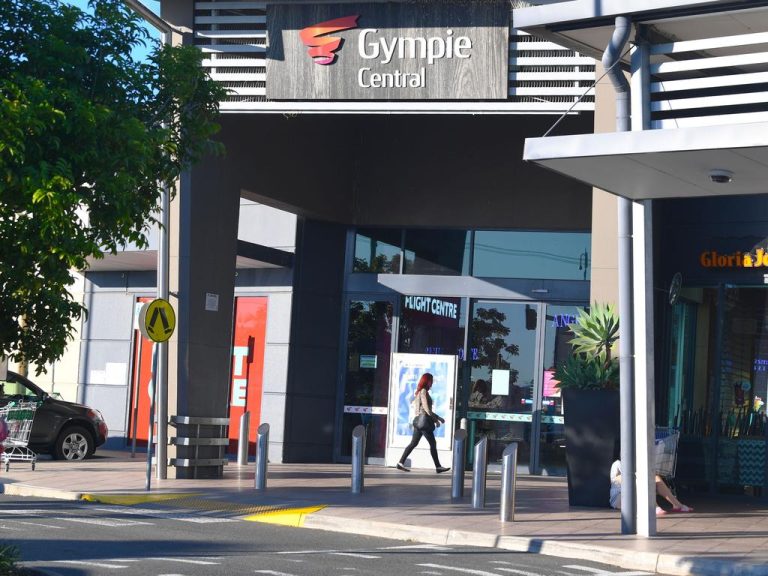What you need to know about commercial property investment taxes

Generally speaking, commercial investors pay tax on the net rental income they earn from an investment property, plus tax on any profits they make from the sale of that property.
That’s the long and short of it – although the reality is a little bit more complicated, as the government offers commercial property investors numerous discounts, deductions and exemptions, in a bid to encourage investment.
With that in mind, here’s our guide to commercial property investment tax.
Commercial Insights: Subscribe to receive the latest news and updates

To encourage investment, the government makes available numerous deductions, discounts and exemptions. Picture: realcommercial.com.au/buy
What tax do you pay on an investment property?
Investors pay tax on the net rental income they earn from an investment property, plus tax on any profits they make from the sale of this property. But the way in which one calculates this tax depends on the type of entity that owns the property.
Individuals
If the legally recognised owner of the commercial property is an individual, then the rental income is incorporated into the individual’s assessable income and taxed at the individual’s marginal tax rate.
A similar system applies to properties with more than one owner, too. In these circumstances, the proportion of rental income attributed to each owner must equal the size of their legal interest in the property – regardless of whether agreements between the owners state otherwise – and each portion of the rental income is taxed at the rates that apply to each individual owner.
Individuals must also pay tax on any capital gains made from the sale of a commercial investment property. The capital gain is simply added to the individual’s assessable income – although, as we’ll explain in the following section, this tax is often subject to significant discounts.
In addition to paying tax on rental income and capital gains, individual commercial property owners are liable for goods and services tax (GST) on the sale price. This means that they pay GST on one-eleventh of the sale price and claim GST credits on purchases that relate to selling the property. The exceptions to this rule are when an individual either uses the margin scheme to work out the GST on the sale of commercial premises, or sells the property as part of a GST-free sale of a going concern.

If the legally recognised owner of the commercial property is an individual, then the rental income is incorporated into the individual’s assessable income and taxed at the individual’s marginal tax rate. Picture: realcommercial.com.au/buy
A discretionary trust
There are multiple trust types, but for the sake of simplicity, this article will focus on just one: discretionary trusts.
As the name implies, this type of trust allows the trustee to apportion rental income to the beneficiaries on a discretionary basis, which means they can decide how much rental income each beneficiary receives from the trust’s property. This set-up enables the trustee to minimise the amount of tax the trust pays by apportioning the most rental income to the beneficiary with the lowest marginal tax rate. Only the beneficiaries who receive an income pay tax; the trust itself doesn’t pay any tax.
The same logic applies when any capital gains are made on a commercial property owned by the trust. In these circumstances, the trustee can minimise the amount of capital gains tax (CGT) paid by streaming the capital gain to a beneficiary with a higher amount of capital losses, or an individual who can benefit from a CGT discount. Again, the trust itself does not any capital gains tax, only the beneficiaries to whom the capital gain is streamed pay capital gains tax.
A trust is also required to pay GST on one-eleventh of the property’s sale price and can claim GST credits on purchases that relate to selling the property – although there are some exceptions to this rule.

You can use a trust to minimise the amount of tax you pay on a commercial property by apportioning the most rental income to the beneficiary with the lowest marginal tax rate. Picture: realcommercial.com.au/buy
A company
If the legally recognised owner of a commercial property is a company, the tax paid on both the property’s net rental income is 30%, as per the current corporate tax rate. This is often a lot lower than an individual’s marginal tax rate – the highest of which currently sits at 45%, alongside a Medicare levy of 2% (FY18-19).
Capital gains are also taxed at 30%, unless the company is eligible for one of the four small business CGT concessions offered by the ATO.
Finally, just like individuals and trusts, companies must also pay GST on one-eleventh of a commercial property’s sale price, but can claim GST credits on purchases that relate to selling the property.
A self-managed super fund
Another popular way to fund a commercial property investment is through your self-managed superannuation fund (SMSF). This strategy is time-consuming, costly and complex, but offers great tax benefits to the knowledgeable investor.
Rental income funnelled into a SMSF is taxed at just 15%, which is much lower than most investors’ personal tax rate. And this rate drops to zero once the fund moves into its pension phase.
During its accumulation phase, a SMSF must pay tax on capital gains tax, too – although, as we’ll explain in the next section, this tax is often subject to significant discounts. Meanwhile, a SMSF that is in its pension phase is exempt from capital gains tax.
A SMSF is also typically required to be registered for GST if it owns a commercial property and its annual turnover exceeds $75,000. This means that it will need to pay GST on one-eleventh of the sale price, but can claim GST credits on purchases that relate to selling the property.

Buying a commercial property through your SMSF offers fantastic tax benefits, but it also requires a technical mind, a deep understanding of economics, and plenty of willpower. Picture: Ben Neale/ Unsplash
What tax deductions can you claim for an investment property?
Broadly speaking, commercial property owners can claim tax deductions for most expenses they incur whilst running their investment property. This includes interest paid on a loan used to buy their commercial investment property, travel costs incurred during visits to their commercial property, advertising fees, repair, maintenance and management expenses, and the depreciation of the building’s structure and assets contained within it.
Read more:
Commercial property investment loans
Business lending and equipment financing
But, just as each ownership structure is obliged to pay different rates of tax, each structure can also claim different types of deductions. In addition to the deductions mentioned above, each ownership structure is often entitled to claim a credit for the GST included in the purchase price, as well as the following discounts and deductions:
Individuals
One of the main benefits of buying a property as an individual is that it allows you to benefit from negative gearing, which means that you can offset any losses made on your investment property against your personal taxable income. This reduces your overall tax bill and, consequently, makes it possible for you to own properties that you otherwise wouldn’t have been able to afford.
The second major benefit to buying a commercial property as an individual is that it entitles you to a capital gains discount of 50% – so long as you owned the property for more than 12 months before selling it. This means that only half of the capital gain is added to your assessable income.

If you buy a commercial property as an individual, you can benefit from negative gearing and claim a 50% discount on capital gains tax. Picture: Shaun Low/Unsplash
A discretionary trust
Discretionary trusts cannot benefit from negative gearing, as they can only distribute income to their beneficiaries, not losses.
However, capital losses can be carried forward and offset against future capital gains. And beneficiaries that receive capital gains can apply whatever discount their specific ownership structure entitles them to. For example, if a trust streams a capital gain to an individual, that individual will be able to apply a 50% discount to that capital gain, so long as the property was owned by the trust for more than 12 months before being sold.
A company
Corporate structures make it difficult to make use of any losses incurred whilst running an investment property, and companies can’t access the 50% capital gains tax discount to individuals.
However, small businesses can benefit from a handful of CGT exemptions and concessions, which you can read about here.

If the legally-recognised owner of a commercial property is a company, no discounts can be applied to any capital gain made from the sale of that property. Picture: realcommercial.com.au/buy
A self-managed super fund
SMSFs can negatively gear their properties, but the benefits of doing so aren’t as great as when an individual does this, because the losses are only offset against income within the fund, which only gets taxed at 15% during the accumulation phase, and at 0% during the pension phase. This means you could be offsetting losses against your fund income, whilst your income outside the fund continues to be taxed at a much higher rate.
As for capital gains tax, self-managed super funds are eligible for a capital gains tax discount of 33% during the accumulation phase, so long as the asset was held by the fund for more than 12 months. This means that the fund pays 15% tax on two-thirds of the capital gain, which is equal to 10% of the total capital gain. And they are eligible for a complete capital gains tax exemption during the pension phase, meaning that they do not need to pay tax on capital gains made during this period.
Seek professional advice
This article is intended to serve as an introduction to commercial property investment taxation, but the complexities of the ATO’s tax legislation mean that it is no substitute for professional advice. Every commercial property investment is different, and so you should always seek help from a solicitor or accountant before filing your tax return.







